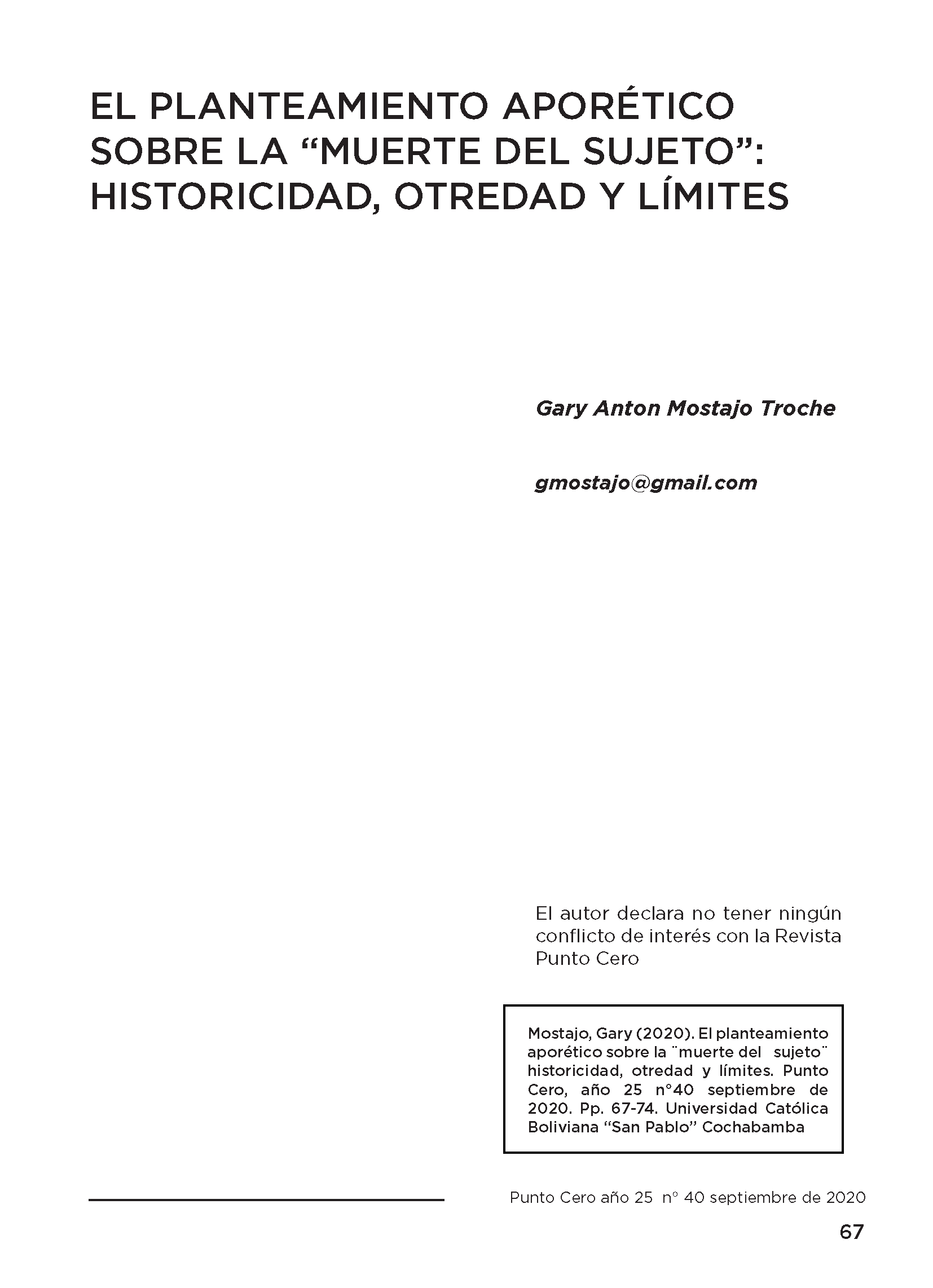The aporetic approach about “death of the subject”: historicity, otherness and limits
DOI:
https://doi.org/10.35319/puntocero.20204015Keywords:
Death, Aporia, Ego, Subject, Intersubjectivity, Otherness, History, FreedomAbstract
The following essay performs a genealogical analysis on the idea of “the death of the subject” as aporia. The first topic it deals with is the relation among subject, history and language in Michel Foucault. Secondly, historicist vision of death from a Heidegger’s ontology approach on the existential analysis of Dasein is questioned. Finally, confronting Levinas ethics, the intersubjective idea of death in its plurality character is settled, reinterpreting the notion of freedom and its temporal condition.
References
Carrasco, R. (2004). Diálogo con Heidegger: aprendamos a filosofar. La Paz, Bolivia: Signo.
Derrida, J. (1998). Aporías. Barcelona, España: Paidós.
Foucault, M. (1966). El nacimiento de la clínica. México D.F., México: Siglo XXI.
Foucault, M. (1970). La arqueología del saber. México D.F., México: Siglo XXI.
Foucault, M. (1986). Las palabras y las cosas. México D.F., México: Siglo XXI.
Heidegger, M. (2003). Ser y tiempo. Madrid, España: Trotta.
Kurzweil, E. (1979). Michael Foucault, acabar la era del hombre. Valencia, España: Teorema.
Levinas, E. (2004). El tiempo y el Otro. Barcelona, España: Paidós.
Levinas, E. (2006). Totalidad e Infinito. Salamanca, España: Sígueme.

Downloads
Published
How to Cite
Issue
Section
License
Copyright (c) 2020 Revista Punto Cero

This work is licensed under a Creative Commons Attribution-NonCommercial 4.0 International License.








